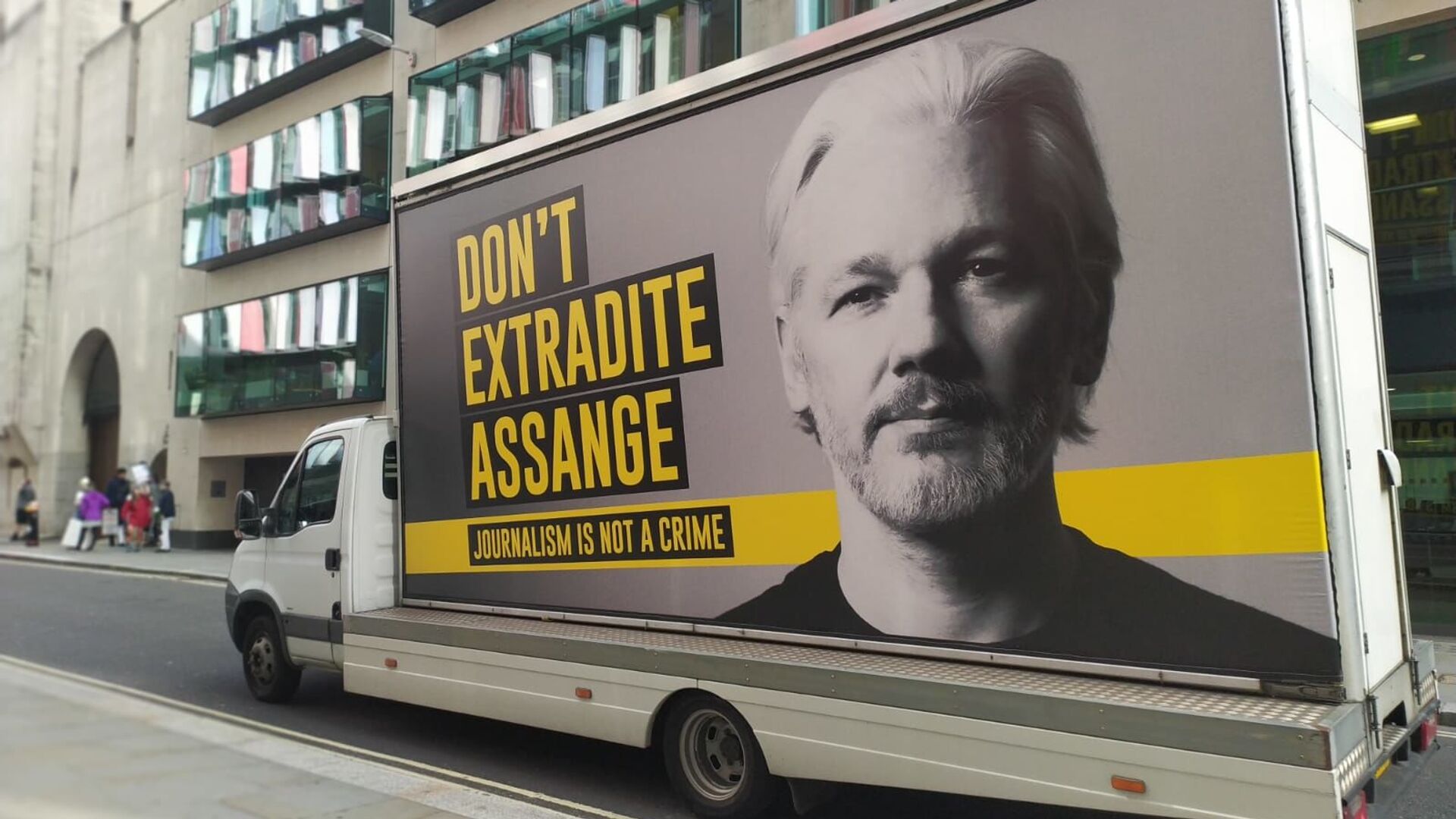The US Department of Justice announced on Tuesday it would challenge a January ruling by a British judge that blocked the extradition of Assange to the US for trial. The news comes as civil liberties advocates hoped the Biden administration would drop the matter.
On January 4, UK District Judge Vanessa Baraitser ruled that Assange’s mental condition rendered it unsafe for him to be extradited to the US, where he is charged under the Espionage Act for allegedly helping former US Army intelligence analyst Chelsea Manning steal damning documents WikiLeaks later published. Baraitser’s ruling cited the treatment Assange would likely endure in a US prison, saying it put him at risk of attempting suicide.
The US government has until Friday to file a brief challenging Baraitser’s ruling; if it does not, then the possibility of extraditing Assange to the US is void and the charges are effectively dropped. However, DOJ spokesperson Marc Raimondi told Reuters the new administration intends to challenge it.
A coalition of advocates and civil rights groups came together on Monday to pressure Biden to drop the charges. A letter sent to Acting Attorney General Monty Wilkinson urged the DOJ not to “jeopardize journalism that is crucial to democracy.”
“It is unfortunately the case that press freedom is under threat globally. Now more than ever, it is crucial that we protect a robust and adversarial press - what Judge Murray Gurfein in the Pentagon Papers case memorably called a ‘cantankerous press, an obstinate press, an ubiquitous press’ - in the United States and abroad,” the letter states. “With this end in mind, we respectfully urge you to forgo the appeal of Judge Baraitser’s ruling, and to dismiss the indictment of Mr. Assange.”
Among the groups that signed the letter are Human Rights Watch, the Electronic Frontier Foundation, Amnesty International, and the Freedom of the Press Foundation.
Biden Never a Friend of Assange
Biden has made clear there are few good feelings lost between him and Assange. In 2010, Biden told CBS’ “Meet the Press” that the DOJ was “looking into” pressing charges against Assange for publishing documents.
Biden said Assange’s actions were closer to being those of a “high-tech terrorist” than they were to the Pentagon Papers, which were a series of Department of Defense documents leaked by analyst and whistleblower Daniel Ellsberg in 1971 that revealed the administration of Lyndon B. Johnson had systematically lied about the scope and goals of the US war in Vietnam.
Later that year, Attorney General Eric Holder also confirmed there was “an active, ongoing criminal investigation” into Manning’s leak to WikiLeaks, which included the “Collateral Murder” video of US soldiers massacring Iraqi civilians and Reuters journalists and which the US government attempted to cover up.
Then in 2011, after WikiLeaks published a huge dossier of files on the US’ detention facility at Guantanamo Bay, Cuba, a federal grand jury in Virginia previously convened to investigate Assange served fresh warrants that journalist Glenn Greenwald said made it “highly likely” the grand jury was again looking to press charges against Assange.
However, the Obama administration ultimately gave up on charging him, concluding his activities were not differentiated enough from journalism for any charge to not also pose a threat to press freedom.
Assange was arrested on April 11, 2019, in London after the Ecuadorian embassy that had hosted him for years suddenly revoked his refuge, allowing British police to arrest him on charges of violating bail in connection to a dropped sexual assault case in Sweden. However, after he was in custody, the US unveiled 18 charges secretly filed against Assange a year prior for allegedly helping Manning to steal the documents she later supplied to WikiLeaks. If convicted, the 49-year-old Assange could face up to 175 years in prison.
Action for Assange, an activist group in the US that advocates for the protection of whistleblowers and the release of Assange, told Sputnik on Tuesday that it was calling for protests in Washington, DC, on March 17.


